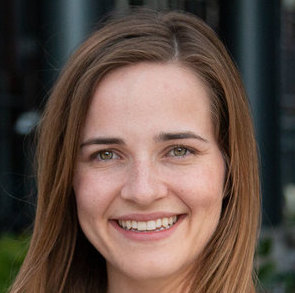Learn / Non-12-Step: A Different Take on Addiction Treatment
Non-12-Step: A Different Take on Addiction Treatment


October 5th, 2018| Clinically Reviewed by
Key Points
- The 12 Steps aren’t the only path to recovery.
- If you haven’t had success with them before, an alternative may be a better fit.
- Non-12-Step models include both holistic and evidence-based approaches.
12-Step programs have been a popular component of addiction recovery for the past 80 years. There are over 123,000 Alcoholics Anonymous chapters around the world, and introducing yourself in front of a group of A.A. meeting attendees has become virtually synonymous with sobriety. But since its inception in the 1930s, a number of other models of addiction recovery have become available—many of which are secular, evidence-based, holistic or otherwise offer a completely different approach to treatment. If you don’t resonate with the 12-Step approach, you may find other alternatives more appealing.
Common Non-12-Step Therapies
Motivational Enhancement Therapy (MET)
Motivational enhancement therapy1 is designed to encourage internal change. It’s a time-limited intervention that typically involves a handful of sessions. The first session usually opens with an assessment and from there, a therapist advises on coping strategies for high-pressure situations. Your progress is tracked throughout the subsequent sessions. This approach uses motivational interviewing techniques to inspire change, and sometimes involves loved ones in treatment.
Biomedical or Medication-Assisted Therapy
This approach takes a logic-based view of addiction as something “broken” that can be fixed. According to clinicians who use pharmacotherapies, medications can be used to correct chemical imbalances in the brain that may make certain people more susceptible to addiction. One example of this would be Naltrexone, which prevents opioid users from feeling the drug’s narcotic effects to help them taper off it. Antidepressants may be given for co-occurring depression, lowering its tendency to exacerbate an addiction. Medications are often used in conjunction with other approaches, like talk therapy.
Neurofeedback Therapy
Neurofeedback therapy is a non-invasive treatment which involves monitoring the activity of the central nervous system. It’s based on the understanding that the brain can self-regulate. By using EEG sensors to monitor brainwave activity and rewarding the brain for calming itself, neurofeedback therapy “rewires” the neural pathways created during substance abuse, essentially training the brain and nervous system to remain in a calmer state. This approach encourages higher-frequency brain waves, which helps improve mood, focus and energy levels.

Holistic and Alternative Therapies
Holistic therapies are designed to complement and enhance conventional therapies like cognitive behavioral therapy by uplifting your overall state. This may make you more receptive to other aspects of your treatment regimen. They’re designed to enhance your health and entire wellbeing using methods like mindfulness, spirituality, and energy work. In rehab, holistic approaches see addiction as a symptom of broader mental, physical and spiritual unwellness and aim to treat the effects of addiction on those aspects of self. Holistic therapies used to treat addiction come in a variety of forms like massage, yoga and reiki.
Considering a Non-12-Step Program
The 12 Steps work great for some people, but they aren’t the only path to recovery. Certain questions can help guide you on whether a non-12-Step program might be a better fit.
Have you already tried the 12 Steps? If you’ve gone to 12-Step meetings many times before or 12-Step based programs and experienced recurring relapse, it may be time to try something else. Keep in mind that relapse is often part of the recovery process—if you felt momentum with the 12 Steps, then it may be best to stick with it.

Are you concerned about co-occurring disorders? The 12 Steps alone is unlikely to fully address trauma, depression, anxiety, and other mental health concerns that may co-occur with addiction. Many rehabs use the 12 Steps alongside other methods. It’s good to check if a rehab center specializes in co-occurring disorders—these are highly complex and require sophisticated treatment.
Explore Non-12-Step Luxury Rehab Centers
While the 12 Steps are widely used in rehabs worldwide, you can find many centers that take a vastly different approach to addiction treatment. In fact, luxury rehabs employ the most innovative treatment methods and specialty programs available. If the 12 Steps didn’t work for you, it may be worth looking into rehab programs with different treatment philosophies. To help with your search, our comprehensive list of non-12-Step luxury rehabs lets you filter by price, amenities, insurance accepted, and more.
Frequently Asked Questions About Non-12-Step Rehabs
What is a non-12-Step rehab?
A non-12-Step rehab doesn’t follow the 12 Steps: a guideline to recovery that involves following designated rules. Non-12-Step rehabs use different models of addiction recovery, such as evidence-based, secular, holistic, and more.
What’s an alternative to 12-Step groups?
Non-12-Step groups provide sober community and emotional support, without following 12-Step principles:
• SMART Recovery
• LifeRing Secular Recovery
• Secular Organizations for Sobriety (S.O.S.)
• Women for Sobriety
• Moderation Management
… and more.
Do non-12-Step programs work?
Addiction is treatable, and plenty of people find success through non-12-Step programs, like holistic rehabs. If you don’t resonate with the 12-Step approach, it may be beneficial to look into alternatives. There are many pathways to recovery; what works for one person may not work for another.
-
William R. Miller, Allen Zweben, D.S.W., Carlo C. DiClemente, Ph.D., & Robert G. Rychtarik, Ph.D. (n.d.). MOTIVATIONAL ENHANCEMENT THERAPY MANUAL A Clinical Research Guide for Therapists Treating Individuals With Alcohol Abuse and Dependence. National Institute on Alcohol Abuse and Alcoholism.
Return to Resource Library
Our Promise
How Is RehabPath Different?
We believe everyone deserves access to accurate, unbiased information about mental health and addiction. That’s why we have a comprehensive set of treatment providers and don't charge for inclusion. Any center that meets our criteria can list for free. We do not and have never accepted fees for referring someone to a particular center. Providers who advertise with us must be verified by our Research Team and we clearly mark their status as advertisers.








